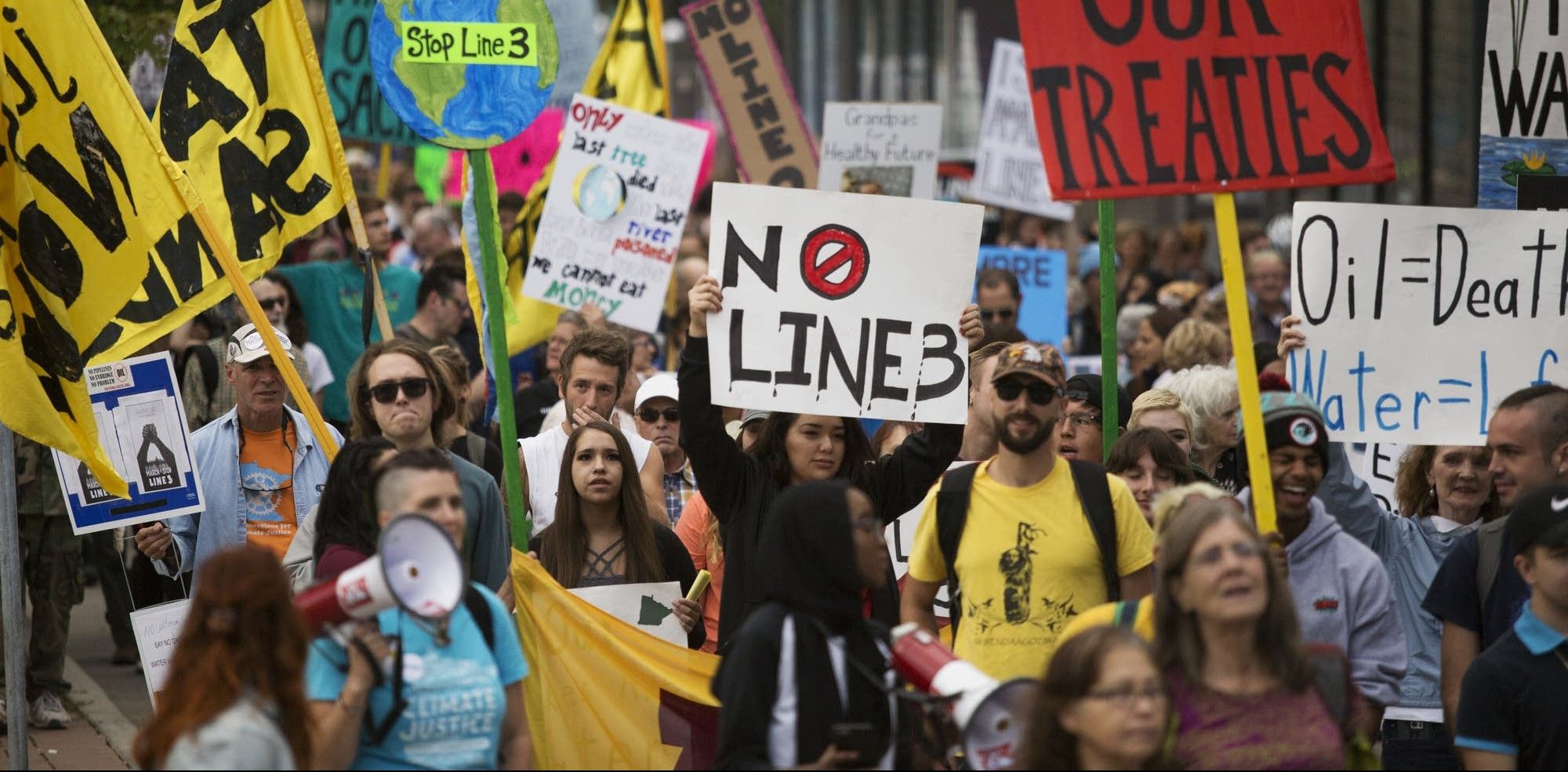
Above Photo: Ellen Schmidt/MPR News.
Native water protectors in Minnesota are waging a battle against the Line 3 pipeline construction which violates their treaties and threatens the environment.
A native-led battle for the environment is being waged in Minnesota. On June 7, water protectors from the territories of the Anishinaabe tribes — which include members of the Odawa, Ojibwe, Potawatomi, Oji-Cree, Saulteaux, and Algonquin peoples — and their allies set up blockades to delay the construction of the Line 3 tar sands pipeline currently being built from Alberta, Canada to Superior, Wisconsin.
These protesters are pitted against Enbridge, a multinational Canadian oil company with a long history of building pipelines that have caused environmental destruction with spills. The current pipeline construction cuts through native lands protected by treaties signed in the 1800s.
Enbridge plans to use the pipeline to carry tar sands oil, one of the dirtiest types of fossil fuels. A Line 3 spill would threaten sensitive watersheds and traditional rice habitats in the region. Even without that environmental threat, however, the construction has already been terrorizing native communities: with the advent of construction camps and their workers, there has been an increase in sexual violence against the local native women.
The water protectors’ actions on June 7 and the days since have been peaceful, but the activists are uncompromising in their defense of the land. Several hundred people showed up on the first day of protests and blocked public roads with their own bodies, even placing a boat in one road leading to a construction site. Dozens of protesters also locked themselves to the boat and to Enbridge equipment at the construction site. It took the cops two days to “free” the equipment of protesters.
Many local police departments are coordinating their efforts to shut down the protests. These cops receive most of their funding directly from Enbridge, a perfect example of the real role of the police as an institution that exists to protect capital.
At first, the cops were somewhat passive in their repression, not having expected and prepared for so many protesters. But it did not take the cops long to become more aggressive. More than 100 protesters were arrested in the first few days of actions. At certain points cops used sonic weapons against the protesters, and a Department of Homeland Security helicopter flew close to the ground and swarmed protesters with clouds of dirt.
This violence succeeded at scuttling some of the more militant resistance to the pipeline, but the fight is far from over. Thousands of protesters have set up an encampment (Camp Fire Light) at a location near where the pipeline is slated to cross the Mississippi River sometime during its construction.
Though the Biden administration claims to take seriously the threat of fossil fuels, it has thus far ignored the protesters’ calls for an end to the pipeline construction. This should not be a surprise. The most famous native-led pipeline protest in recent history was the one at Standing Rock in North Dakota, which took place during the Obama/Biden administration. The Democrats in the White House then took no stand to defend the protesters, even when riot cops sprayed them with freezing water cannons, tear gas, and various other “less-than-lethal” munitions. Some activists involved in the protests now have cancer, possibly from the use of a crop duster at the protests, which sprayed activists with chemicals.
The water protectors in Minnesota likely have a long and difficult battle ahead. Their protests matter far beyond the native communities. All workers are affected by the destruction of the environment through capitalism’s extraction of fossil fuels.
Those seeking to shut down Line 3 before further destruction can be done deserve our full solidarity.
 RSS Feed
RSS Feed















 June 17th, 2021
June 17th, 2021  Awake Goy
Awake Goy  Posted in
Posted in  Tags:
Tags: 













